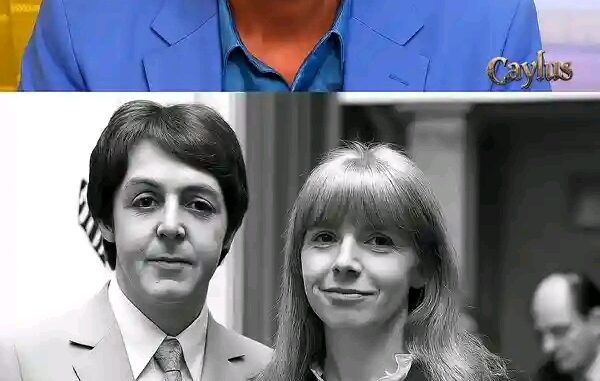
London, 1964 — In the early hours of a morning in 1964, Paul McCartney awoke in a small attic bedroom at 57 Wimpole Street, the London residence of his girlfriend Jane Asher. As the story goes, the legendary musician was struck by a melody so vivid and complete that he believed it must have originated elsewhere — a gift from his subconscious, perhaps, or a fragment of a forgotten tune.
According to McCartney, the melody came to him in his sleep, so natural and moving that he was compelled to act immediately. He darted to the piano at the foot of his bed and began playing the tune to capture its essence before it could fade. To make sense of its structure, he hastily improvised placeholder lyrics: “Scrambled eggs, oh my baby how I love your legs,” a humorous and nonsensical phrase that served as a temporary scaffold.
For weeks, McCartney sought reassurance. He asked friends, bandmates, and industry insiders if they recognized the melody. He played it for George Martin, The Beatles’ producer, as well as Ringo Starr and George Harrison. The response was unanimous: no one had heard it before. The song was entirely new, yet its perfection made Paul feel as though it had already existed elsewhere. “I thought someone must’ve written it already,” he later recalled. “I had to make sure it hadn’t come from somewhere else.” The idea that the tune was a subconscious gift, rather than a borrowed melody, became an accepted fact.
Throughout this period, McCartney carried the melody everywhere, testing it out on friends and colleagues with cautious humming. The song’s origin remained a mystery—an unclaimed treasure from his mind. Gradually, he accepted that the melody had arrived in his sleep, a fully formed gift from his subconscious, a phenomenon not uncommon among creative geniuses.
As The Beatles began working on their fifth studio album, *Help!*, in 1965, Paul McCartney started refining the song’s lyrics. The humorous placeholder lines evolved into something more profound. The initial “Scrambled Eggs” chorus was replaced with the now-famous opening line, “Yesterday, all my troubles seemed so far away.” The song’s tone shifted from playful to poignant, capturing themes of heartbreak, loss, and longing.
“Yesterday” marked a stylistic departure for The Beatles. Unlike many of their earlier tracks, which featured energetic harmonies and full band arrangements, “Yesterday” was stripped down to its emotional core. McCartney’s voice was accompanied solely by an acoustic guitar and a string quartet, emphasizing vulnerability and intimacy. The arrangement’s simplicity highlighted the song’s universal themes and showcased McCartney’s songwriting prowess.
The song’s journey from a subconscious melody to a timeless classic is a testament to the power of inspiration and the creative process. Despite initial doubts about its originality, “Yesterday” became one of The Beatles’ most beloved songs, covered by artists across genres and generations. It remains a poignant reminder of how a fleeting dream can lead to enduring artistry.
Today, “Yesterday” stands as a milestone in popular music history, illustrating how a moment of inspiration—whether from sleep, subconscious, or elsewhere—can produce a masterpiece that resonates worldwide. Paul McCartney’s story continues to inspire musicians and fans alike, reaffirming the idea that sometimes, the greatest art begins in the realm of dreams.
Leave a Reply